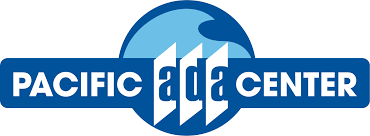(Printer-friendly PDF version | 236 KB)
(Large Print PDF version | 290 KB)
(Spanish version)
The law
Department of Transportation (DOT) issues regulations implementing the transportation and related provisions of the Americans with Disabilities Act (ADA) and Section 504 of the Rehabilitation Act of 1973, as amended. These regulations apply broadly to both public and private entities and to almost all types of transportation services, including fixed route bus and rail (e.g., commuter, rapid, and light rail), complementary paratransit, demand responsive service and ferry service.
Title II of the ADA applies to public transportation provided by State and local governments. Section 504 applies to all organizations and agencies that receive federal funding. Both laws require that policies, practice and procedures be modified so that the transportation services are accessible to individuals with disabilities.
Types of public transportation services
This factsheet addresses two kinds of public transportation services:
- Fixed-route bus service—buses have established routes and make stops at pre-determined destinations.
- Demand-responsive service (also known as ADA complementary paratransit) — buses provide origin-to-destination service in response to requests from individuals with disabilities who need accommodation.
Public transportation accessibility modifications
Modifications that make public transportation accessible to individuals with disabilities may include ramps, lifts, changes in stop locations, designated seating areas, complementary (non-fixed route) bus systems.
Requests for modifications
Transit Provider’s Responsibilities:
- Provide information to the public in accessible formats about the process for requesting reasonable modification.
- Clearly state the eligibility requirements, the timeline for requesting modifications, and the complaint process.
- Provide several accessible ways to request the reasonable modification—for example, through phone, email, TTY or on the transit provider’s website
- Inform rider of decision to grant or deny request.
Rider’s Responsibilities:
- Provide a clear description of the modification needed to use the transportation service (for example, relocating a bus stop to the next block if the current location is inaccessible).
- Make the modification request as far in advance as possible, particularly when there is a long-term problem. For example, there is no accessible bus stop, the ramp to the passenger’s front door is too steep to be picked up at the front, construction blocks the regular route, etc. Advance requests can be made at any time during the eligibility determination, reservation, or complaint process.
Transit providers do not need to provide a modification if it:
- Causes a direct threat to the health or safety of others. For example, when assisting a passenger means leaving the transit vehicle unattended in a high traffic area, that could likely result in a collision and endanger the safety of the other passengers.
- Results in a fundamental alteration of the service. For example, if an individual requests the driver of a fixed-route service to stop at a location that is not on the schedule, this is a fundamental alteration to fixed-route service.
- Is unnecessary in order for the individual with the disability to receive services. For example, a passenger asks to sit in the same seat every time because of a personal preference.
- Results in an undue financial or administrative burden to the transit agency. (Applies only to recipients of Federal financial assistance.) An individual who requests a specific driver for a paratransit trip may be denied this request because this would cause an administrative burden.
Common examples of reasonable modification requests in fixed-route transportation include:
- Positioning the bus for loading and unloading in a location where there are no obstructions, such as construction.
- Allowing a person with diabetes to eat on the bus to avoid a drop in glucose.
Common examples of reasonable modification requests in paratransit include:
- Picking a rider up at a building entrance that is flat and unobstructed.
- Helping an individual who is blind get to the front of the building in extreme weather.
How to File a Complaint
Follow the complaint process of the local transportation agency directly first. For more information on filing a complaint, contact the customer service department with the local transportation agency.
If the transit agency is unable to resolve the complaint, you can file a complaint with the Federal Transit Administration Office of Civil Rights. Complaints should be filed within 180 days from the date of the incident. Download the FTA complaint form and mail it to:
Federal Transit Administration
Office of Civil Rights
Attention: Complaint Team
East Building, 5th Floor – TCR
1200 New Jersey Ave., SE
Washington, DC 20590
Include the following information with your complaint:
- Statement of events including the date(s) and time(s)
- Any supporting documentation
You will receive a letter from the FTA that describes the findings of the investigation and any corrective action the transit agency is required to take to correct the problem.
For more information about the ADA and Public Transportation, call an ADA specialist at 1-800-949-4232. All calls are confidential.
|
Content was developed by the Pacific ADA Center and is based on professional consensus of ADA experts and the ADA National Network. |
|
|
|
The contents of this factsheet were developed under grants from the National Institute on Disability, Independent Living, and Rehabilitation Research (NIDILRR grant numbers 90DP0081 and 90DP0086). NIDILRR is a Center within the Administration for Community Living (ACL), Department of Health and Human Services (HHS). The contents of this factsheet do not necessarily represent the policy of NIDILRR, ACL, HHS, and you should not assume endorsement by the Federal Government. |
|
© Copyright 2018 ADA National Network. All Rights Reserved. |
|

.png)





